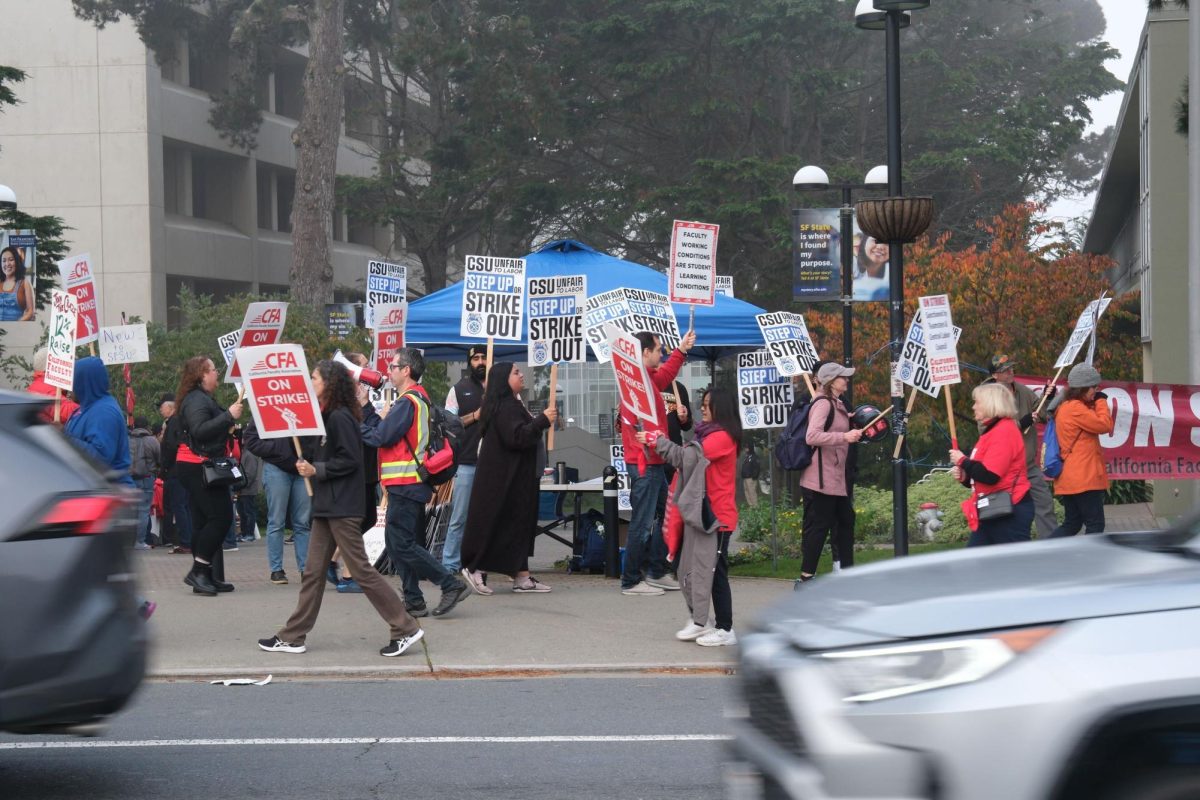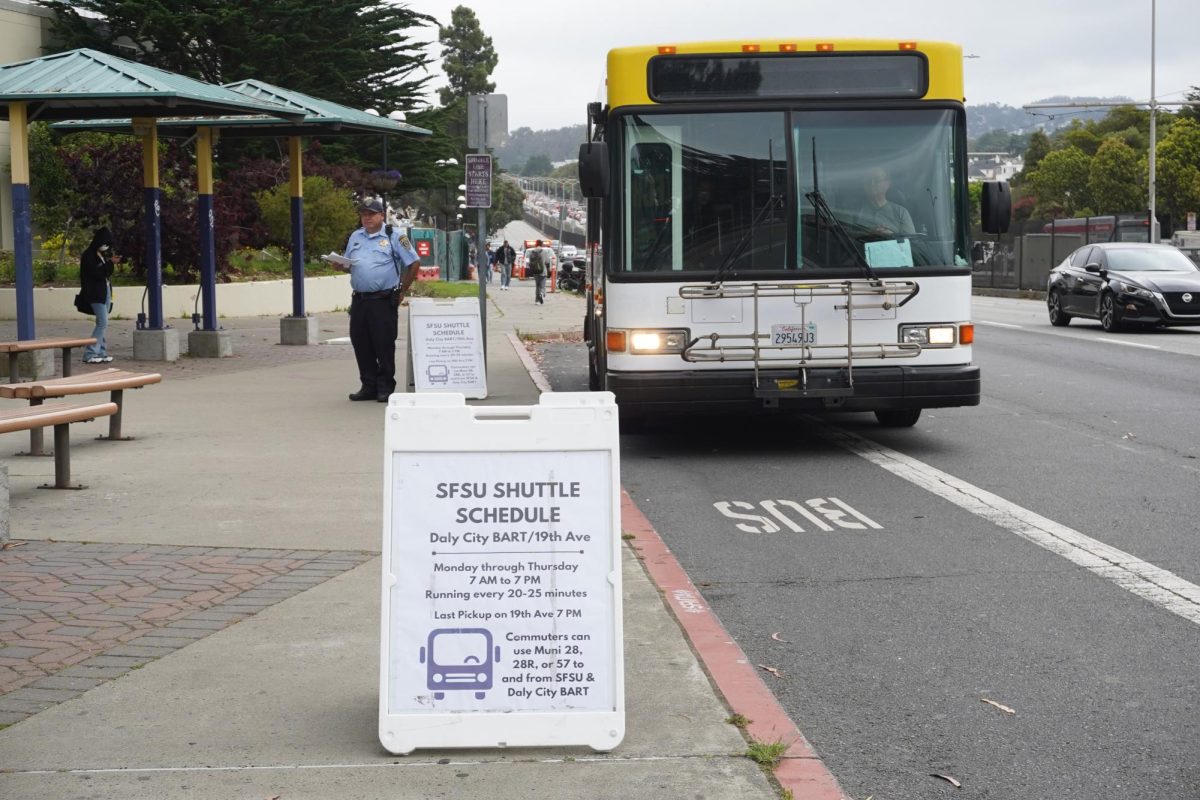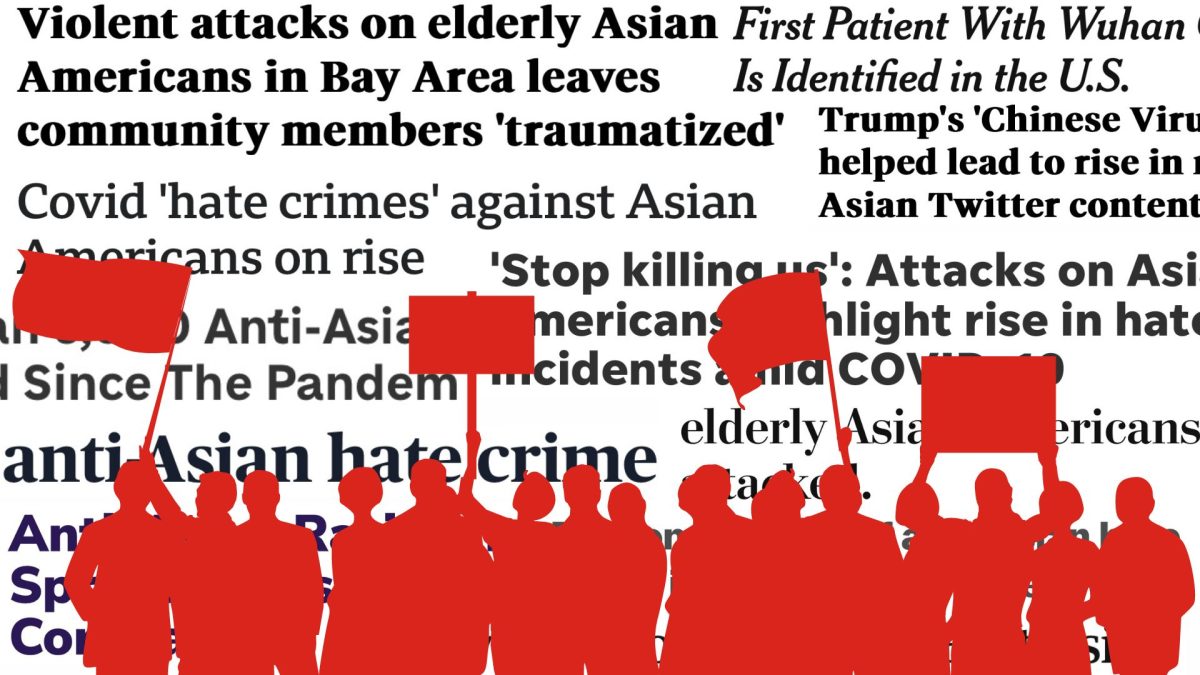Miwa Ikema graduated from SF State in 2016 with a Master’s Degree in philosophy, but she continues to sit at the front of the library several times a week with a petition to keep the library’s Accessible Technology Commons open for SF State students who are registered with the university as having disabilities and need specific types of assistance to access library resources.
Last semester, Ikema began gathering signatures to keep the Commons open for SF State students when she heard about the university’s plan to close it. Now she’s not only fighting for the ATC’s uncertain future, but also her individual ability to use that section of the library as an alumna.

Eugene Chelberg, Associate Vice President for Student Affairs confirmed that the ATC will eventually close to make way for a universal design model that seeks to integrate resources for people with disabilities throughout the library. Yet the date the commons will close is still undetermined.
To Ikema’s success, the ATC remained open months longer than was initially intended. Since graduating three years ago, Ikema, who is 69 and blind, has continued to use the ATC to work on research papers and use the braille printer and embosser which are nested in a private room. But as of this semester, the Disability Programs and Resource Center (DPRC) told Ikema she was no longer allowed to use the space because she is not a registered student. She said she believes the policy update barring alumni from being able to use the ATC was a direct result of her earlier protest. She also said she also got no clear answer as to when the facility would permanently close.
“They changed the policy suddenly,” Ikema said. “I asked what the DPRC changed the policy for and no answer. I emailed the director (Wendy Tobias) and I said, ‘If changing the policy is not retaliation or harassment toward me, is it possible for you to make an exception for me?’ Every rule, every policy has exceptions. She said no exception would be made. So I interpreted this the new policy means harassment or retaliation toward me.”
After a series of unanswered letters and requests, Ikema asked Xpress to look into what changed.
Chelberg said the ATC policy changed in order to align with the greater library policies. Community members, including alumni, are allowed to use one of the six two-hour stations, all of which have software available for students with disabilities, including screen readers, voice synthesizers, screen enlargement software and assisted reading software.
“The library exists for students to study and do research and that’s where we need to focus our energy and that’s where we are focusing our energy with the Accessible Technology Commons as well,” Chelberg said. Chelberg also said that the ATC policy historically did not allow alumni in, but after the library was remodeled, and reopened for full service in 2012, there was a lack of regulation which he called an “oversight.”
Ikema, who pays an alumni fee, said she feels that the policy prohibiting alumni from using the ATC is discriminatory, especially given the fact that she has used the area for so long. She said the current public offerings to community members do not work for her. She is required to use headphones to use the text to speech software but has hearing aids in both ears and will get headaches if she uses them. Since the policy update, she no longer has a place to work because she does not have a computer set up at home and also does not have a braille printer. There is one currently located in the ATC.
“What they say is ‘make a document and save it in the flash drive and bring it to ATC to and ask monitor to emboss it,’” Ikema said. “But however monitors don’t know braille … Since they don’t know braille well, [the] embosser makes mistakes [and] they cannot find the mistakes. They need a proofreader anyways. They need my help to accomplish their work.”
Chelberg, who is also blind, said many people don’t use the embossers anymore because refreshable braille technology makes it possible to keep documents portable on an iPad. He also stated that no current students at this time were using the embosser and have not used it for a long time. Meaning Ikema is the only student left using it.
“The community is served by the San Francisco public library system,” Chelberg said. “San Francisco public library system has accessible technology at their main library including braille, braille display, and a braille embosser.” According to the San Francisco Public Library system, the main library is the only location in San Francisco that has such a set up and it is a 48 minute transit ride from campus.
Madison Javier, an SF State alumna, frequently used the ATC before graduating in 2018. As someone who also has visual impairments, she used the text-to-speech software ZoomText and said it would be nice and convenient to be able to use the center as an alumna, but understands why the policy exists.
“They would have to accommodate the needs of the students who were registered there,” Javier
said. “So although I do understand her struggle, I do see where the school is coming from.”
While Ikema and other alumni may have to look beyond SF State for the accommodations they need, currently enrolled students who are registered with the DPRC will have the ATC as a resource for the rest of this fall semester.
In May 2019, when the ATC’s imminent closure was first announced, Xpress interviewed current students in addition to Ikema and their main concern with the universal design model was privacy. This and other feedback made its way to the top and Chelberg said that the last piece of the puzzle for starting construction on universal design was finding a way to make sure students were able to get private spaces to study within the common areas. He said the ATC would not close until the library in partnership with the DPRC found a solution so the official date that the ATC will close is not known.
“We can’t put artificial ceilings in the library right because its against fire code. The library has quiet study space distributed throughout the library,” Chelberg said. “So what we are looking at with the university library right now is looking at some as I said kind of semi-private cubicles or study carols that would be in those quiet study spaces.”
Because Javier has some vision left, she was able to move to a different computer in the library and use the magnifier if necessary, but said she really appreciated the privacy of the ATC which allowed for better focus on what was being read to her. She also said it was also helpful to have a lab monitor who was there to assist specifically with ATC technological problems.
Javier said she thinks it is nice that Ikema continues to advocate for the space. “At least for other schools that I’ve gone to like community colleges and stuff, they didn’t have like a specific AT commons,” Javier said. “I think that’s what makes SF State a really unique school is that they really value the disability population that goes there. ATC really showed that and I hope they keep it open.”
As for Ikema, she was out again in front of the library yesterday continuing to collect signatures.
“I don’t think I’m selfish,” Ikema said. “I don’t think I’m fighting only for myself. I’m fighting for everybody.”









